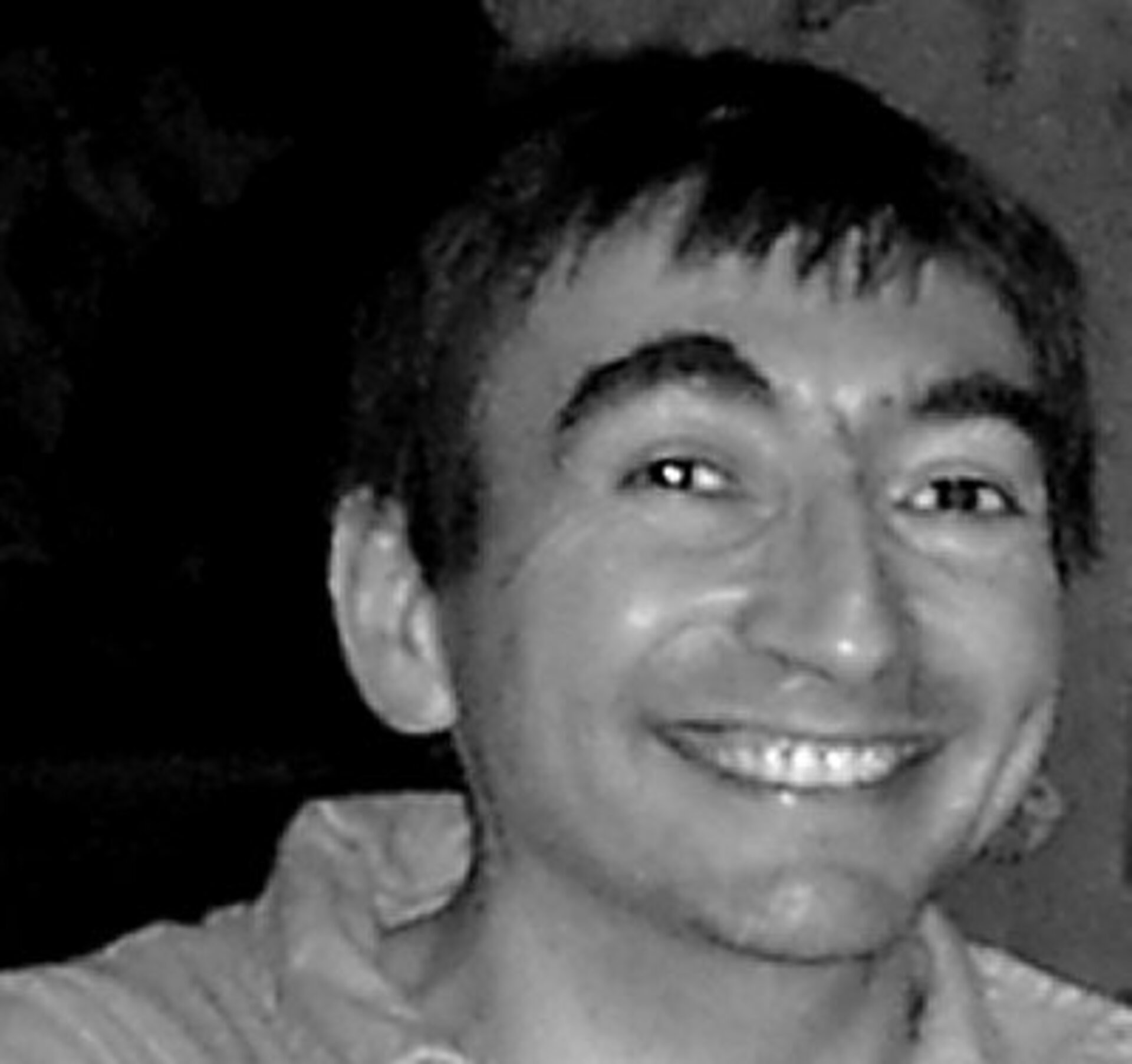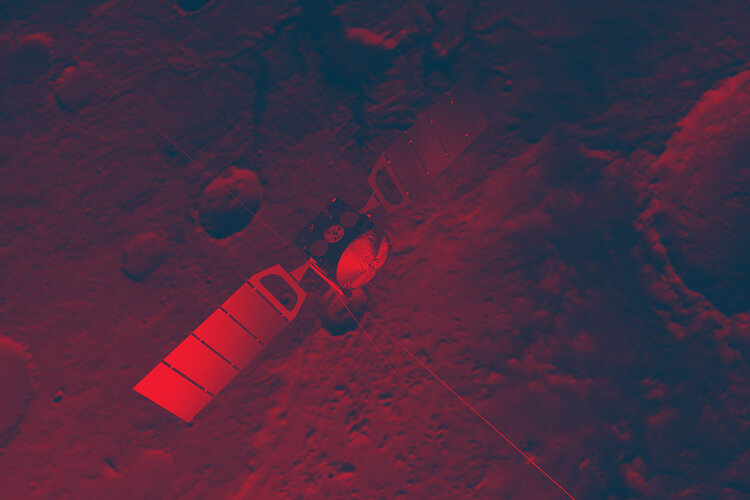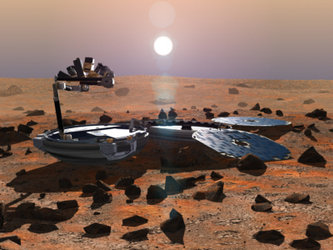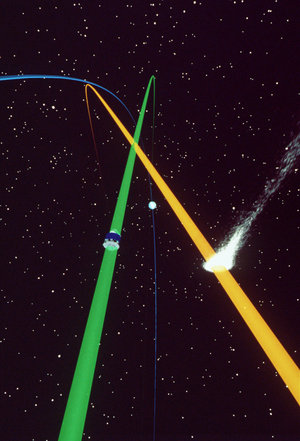New machine in a new environment: An interview with Michel Denis
The same skills that Michel Denis once used to design safety-critical software systems for cars and aircraft are now used for overseeing the safety of a spacecraft on its way to Mars.

Michel Denis
ESA Spacecraft Operations Manager, Mars Express
Born: 17 May 1961 in Tulle, France
Baccalaureate degree in engineering from the Paris Ecole Centrale, 1983.
Michel taught mathematics in Morocco for two years, then became an engineer working on embedded software systems in France. He joined ESA in 1992, working as Spacecraft Operations Engineer for Meteosat, then Spacecraft Operations and On-board Software Engineer for Cluster, Huygens and XMM-Newton.
Now as Spacecraft Operations Manager of Mars Express, Michel is in charge of a team of engineers responsible for overseeing its operations, monitoring its state of health and planning spacecraft activities after Mars orbit is achieved.
Married with two children, Michel enjoys spending time with his family and reading 19th and 20th century French novels.
ESA: With Mars Express almost arrived at its destination, how do you feel?
Michel Denis
Full of excitement, but the team also feels very confident and in great shape. We have met all our deadlines and are ready for Mars capture. We are spending the remaining time preparing for contingency scenarios and running simulation campaigns – basically dress rehearsals for the operation ahead.
Our confidence comes from the fact we have already overcome a number of problems both expected and unexpected during the interplanetary cruise phase, which proved a much more busy time than the relaxed name suggests!
But now we are under five million kilometres from Mars, and more than 130 million kilometres from Earth, so Mars Express now lives up to its name.
We are five million kilometres from Mars, so Mars Express now lives up to its name.
ESA: What difficulties has the mission faced so far?
Michel Denis
Some problems are to be anticipated when driving a new machine in an entirely new environment. Mars Express is a complex machine but it has a large duplication of elements so if the system detects a fault it can switch to a back-up. Its complexity means it can also surprise us sometimes – just as a modern computerised car can surprise its user, and differs from a model from 20 years earlier!
The spacecraft has shut down into 'safe' mode quite a few times. Despite the name, safe mode isn't good – we definitely don't like it, but we're certainly not afraid of it anymore. Even if the spacecraft went into safe mode before orbit capture we are certain we could recover.
The main unexpected problem was the solar flare in October. It blinded our startrackers that maintained spacecraft attitude – the sky appeared full of particles that looked like stars - so we had to use the gyroscopes while it lasted. Other systems reported sudden high error rates, but it was keeping the attitude pointing towards Earth that was most important.
That's because we maintain contact with Mars Express using the high-gain antenna, which is a dish about twice the size of a domestic TV satellite aerial. The wider the dish, the narrower the radio beam, so it needs to be kept as steady as it can be.
Designing software to make a car or aircraft safer wasn't really so different from preparing a space mission to fly.
ESA: What first inspired you to become involved in space, and how did you get working in the field?
Michel Denis
I'm not one of those people who always dreamed of being a space engineer or astronaut. Before starting work at ESOC I had no special interest in space whatsoever. My first job was part of my military service, teaching mathematics in Morocco. In some ways that was a dream job because I come from a family of teachers, but I decided it wasn’t to be for all of my life.
So I went back to college and got post-graduate training, and in the mid-80s I began working in the field of embedded software – that is, software not in computers but inside in the engines of cars or planes, hopefully to make them run better and more safely. Then I met my wife, who is German, so I needed a job in Germany and applied to ESOC.
What I found was that designing embedded software to make a car or aircraft safer wasn't really so different from preparing the space segment of a mission to fly. And my interest in space has grown steadily since coming to ESOC.
Mars Express will become a whole new mission once it achieves Martian orbit.
ESA: What drives you in your job, and what fascinates you about Mars in particular?
Michel Denis
As Spacecraft Operations Manager, the challenge is to make sure the spacecraft is operated as well as it can and the largest part of that is communicating with people. I have a team of about 15 people, some dedicated to mission planning, and I also have to liaise with people outside ESOC such as ESTEC, industry and the Principal Investigators. I have to have a good overview of the spacecraft, all its subsystems and the ground segment and make that work as well as it can.
In many ways, Mars Express will become a whole new mission once it achieves Martian orbit. Then the task will be to maintain regular operations and return science data to Earth. There will be three orbits a day and several opportunities to send data to Earth, juggling the orbits of the two planets and the positions of the ground stations. We have software tools to help us with this.
And there is definitely a special fascination about going to Mars. It is the planet nearest to Earth in terms of its characteristics and possibly its previous history. It has been an easy planet to see all through the summer. My kids have been seeing it and say that's where our Papa is going!
My kids have been seeing Mars and say that's where our Papa is going!
ESA: If there is one message you can give to someone considering entering the space field, what would it be?
Michel Denis
From my perspective, study a particular science or technical subject while you have the chance. If you do enter the space field in whatever capacity, then you will get much more out of it, even if you find yourself a job where you don't get to use your original skills directly. You will get much more out of the experience, and you will enjoy it more!








